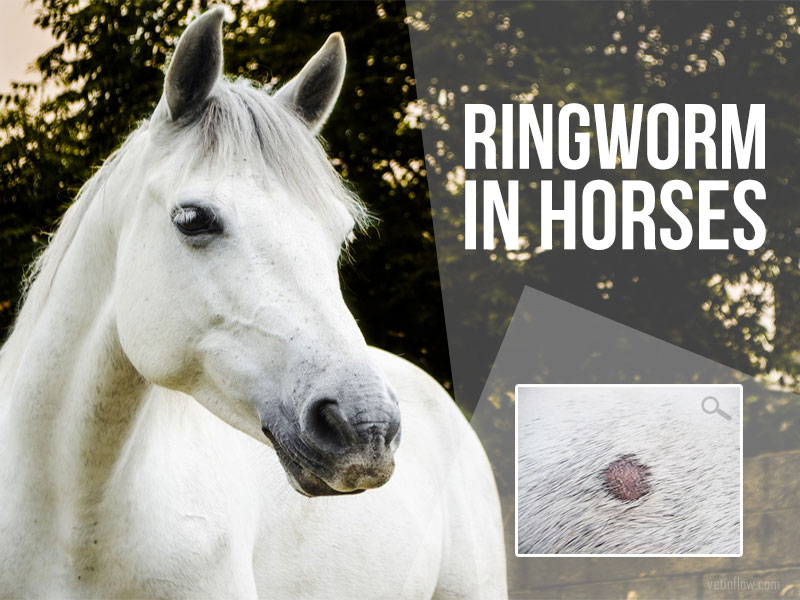
Ringworm in horses
Ringworm is a highly contagious skin infection that can affect an entire group of horses in case of an outbreak. This condition is caused by fungi of the genus Microsporum and Trichophyton (dermatophytes) that can remain on the horse's skin for up to three weeks, before any signs of infection become visible. Unfortunately, this means that by the time the infection is detected in one horse, others may already be infected too!
Clinical signs of ringworm are skin lesions commonly seen on the tack areas: small, hairless, raised spots that develop into thick, dry, typical ring-shaped lesions. Grooming can help spread the fungus and there is always the risk of secondary bacterial infections settling in.
These dermatophytes are quite resistant and can remain on objects and structures of the surrounding environment for years. Ringworm can be transmitted by direct contact between horses and indirect contact through contaminated objects. It is very common for the infection to be transmitted by shared tack, grooming equipment, clothing, contaminated bedding, fencing, stables or trailers.
Young animals, as well as very old or debilitated ones are more susceptible to ringworm. Some horses do not show any clinical signs until their immunity becomes compromised as a result of illness, poor nutrition, overcrowding or stress.
Although this infection is a self-limiting disease that produces long lasting immunity, it can take up to three months to disappear on its own. Treatment is always the best course of action since it will relieve the horse's discomfort, reduce the shedding of spores in the stable environment and reduce the risk of spreading the disease to other horses.
The affected horse should be kept separated from other animals and have its own grooming kit and tack. Stables and equipment should also be thoroughly cleaned and disinfected during and after treatment. Although it is uncommon, ringworm can infect people. For this reason handlers should use gloves when dealing with affected horses.
Ringworm is one of the reasons why, whenever possible, new arrivals should be isolated and monitored for signs of contagious diseases for 21 days before coming into contact with the other horses.
Would you like to know more about horses? Check our Equine Courses:
Equine courses
Read the previous article: Canine body language


